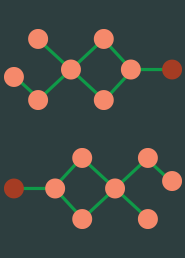Annual Review of Biomedical Data Science - Volume 6, 2023
Volume 6, 2023
-
-
The All of Us Data and Research Center: Creating a Secure, Scalable, and Sustainable Ecosystem for Biomedical Research
Kelsey R. Mayo, Melissa A. Basford, Robert J. Carroll, Moira Dillon, Heather Fullen, Jesse Leung, Hiral Master, Shimon Rura, Lina Sulieman, Nan Kennedy, Eric Banks, David Bernick, Asmita Gauchan, Lee Lichtenstein, Brandy M. Mapes, Kayla Marginean, Steve L. Nyemba, Andrea Ramirez, Charissa Rotundo, Keri Wolfe, Weiyi Xia, Romuladus E. Azuine, Robert M. Cronin, Joshua C. Denny, Abel Kho, Christopher Lunt, Bradley Malin, Karthik Natarajan, Consuelo H. Wilkins, Hua Xu, George Hripcsak, Dan M. Roden, Anthony A. Philippakis, David Glazer, and Paul A. HarrisVol. 6 (2023), pp. 443–464More LessThe All of Us Research Program's Data and Research Center (DRC) was established to help acquire, curate, and provide access to one of the world's largest and most diverse datasets for precision medicine research. Already, over 500,000 participants are enrolled in All of Us, 80% of whom are underrepresented in biomedical research, and data are being analyzed by a community of over 2,300 researchers. The DRC created this thriving data ecosystem by collaborating with engaged participants, innovative program partners, and empowered researchers. In this review, we first describe how the DRC is organized to meet the needs of this broad group of stakeholders. We then outline guiding principles, common challenges, and innovative approaches used to build the All of Us data ecosystem. Finally, we share lessons learned to help others navigate important decisions and trade-offs in building a modern biomedical data platform.
-
-
-
Human Genomics of COVID-19 Pneumonia: Contributions of Rare and Common Variants
Vol. 6 (2023), pp. 465–486More LessSARS-CoV-2 (severe acute respiratory syndrome coronavirus 2) infection is silent or benign in most infected individuals, but causes hypoxemic COVID-19 pneumonia in about 10% of cases. We review studies of the human genetics of life-threatening COVID-19 pneumonia, focusing on both rare and common variants. Large-scale genome-wide association studies have identified more than 20 common loci robustly associated with COVID-19 pneumonia with modest effect sizes, some implicating genes expressed in the lungs or leukocytes. The most robust association, on chromosome 3, concerns a haplotype inherited from Neanderthals. Sequencing studies focusing on rare variants with a strong effect have been particularly successful, identifying inborn errors of type I interferon (IFN) immunity in 1–5% of unvaccinated patients with critical pneumonia, and their autoimmune phenocopy, autoantibodies against type I IFN, in another 15–20% of cases. Our growing understanding of the impact of human genetic variation on immunity to SARS-CoV-2 is enabling health systems to improve protection for individuals and populations.
-

